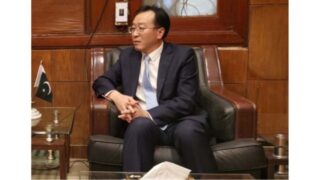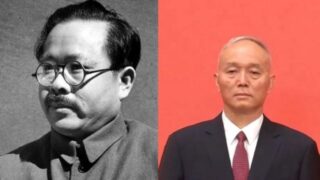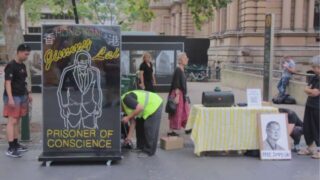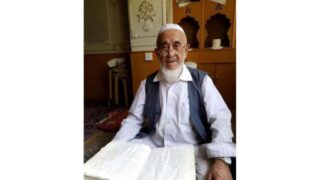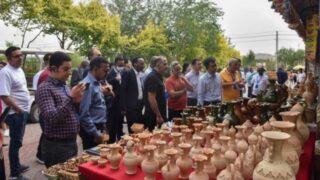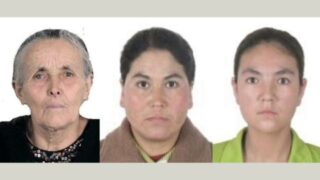In Munich, Germany, the major umbrella organization of the Uyghur diaspora celebrated two decades of operation with an important three-day event.
by Marco Respinti


And they danced. Uyghurs, confined in the Xinjiang Uyghur Autonomous Region (XUAR) that became an open-air prison through the years, are the victims of an astonishing persecution, harshly waged against them by the Communist regime of the People’s Republic of China (PRC), and to their jailors they respond by singing and dancing.
The 20th anniversary of the foundation of the World Uyghur Congress (WUC), celebrated in Munich, Germany, on May 3‒5, 2024, amidst a crowd of some 250 delegates from a number of countries mixed to experts, scholars, and activists, was an occasion of sorrow but also of joy. Harassment, unlawful jailing, deportation, destruction of families, slave labor in coercive camps, ideological indoctrination, and denial of religious liberty account for the sorrow remembered, expressed, and witnessed by many of the delegates, who, on many occasions, physically suffered the Chinese repression.
As to joy, the WUC celebration was a striking evidence of the fact that not even the most brutal regime can strip people of their intimate freedom. Cultural performances in beautiful traditional costumes and vernacular songs accompanied by music played by ancient, fascinating instruments from Central Asia testified that persecuted but strong people like the Uyghurs may, on occasions, strategically bend, but they never go ultimately broken. And it was then that beauty answered cruelty.
In this scenario, I found myself commenting what we participated in with Mia Hasenson-Gross, Executive Director of René Cassin institution in London, a panelist at the WUC event and a Jew advocating for Muslim Uyghurs against the cultural genocide which is wiping an entire people out. It reminded us of “Fiddler on the Roof,” the 1971 movie directed by Norman Jewinson, where Russian Jews respond to pogroms with their traditions and the sound of a violin.
The psychological damage
The celebration of the WUC anniversary was opened by a very important session in the morning of May 3, at the Department of Psychiatry of Munich’s Institute of Psychiatric Phenomics and Genomics (IPPG). Professor Thomas G. Schulze, of IPPG, presented the results an advanced research study that he and Professor Thomas Wenzel of the Medical University of Vienna, Austria, wish to publish soon on the psychological consequences of the torture and persecution that Uyghurs are subject to in XUAR. They hope to promote this peculiar and much needed topic in the broader scientific discourse.
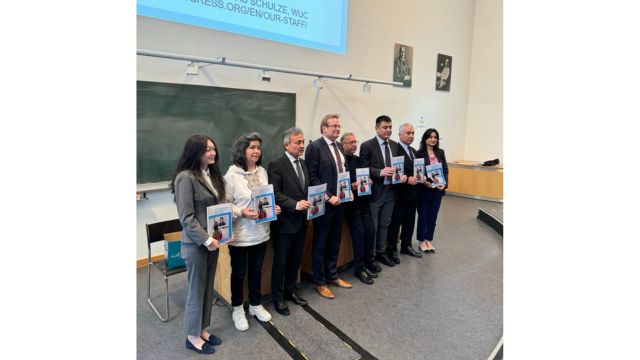

With comments by Bahtiyar Omer, Chairman of the Norway Uyghur Committee, survivor of an internment camp, Kalbinur Sidik, and Akeda Jume, a Uyghur Psychology graduate from Virginia Polytechnic Institute and State University (commonly known as Virginia Tech University), in Blacksburg, Virginia, this introductory session brought the topic to the next step. It is in fact important to bring the so-called “Uyghur crisis” to the following level of both attention and scholarship, so that the international scientific community may start treating the subject as an objective discipline, supported by proofs and evidence as it does in other fields.
But the delegates at the WUC event did not forget advocacy either. They in fact proceeded to wage a pacific protest in front of the PRC’s Consulate in Munich. While Uyghurs suffer daily persecution in XUAR, PRC’s president Xi Jinping has started his tour in Europe, visiting Paris, in France, Belgrade in Serbia and Budapest in Hungary to strengthen commercial and industrial ties that will of course also contribute to silencing any possible political reaction of those countries to any misdeed committed by Beijing. How is it possible, the protesting Uyghurs vocally said, that a tyrant like that may roam the free world unchallenged, disseminating his propaganda?


A parterre of important guests
The richness of the WUC event was testified by the diversified panels that followed, one after the other, for three days. WUC president Dolkun Isa; Omer Kanat, Executive Director of the Uyghur Human Rights Project; Erkin Alptekin, Founding President of WUC; Markus Rinderspacher, Vice President of the Bavarian Parliament; Peter Heidt, member of the German Parliament; Jiri Oberfalzer, Vice President of the Czech Senate; Nury Turkel, Commissioner and former Chair of the US Commission on International Religious Freedom (USCIRF); Kelley Currie, former US Ambassador to the United Nations; Shieh Jhy-Wey, Representative of the Republic of China (Taiwan) to Germany; Pina Picierno, Vice President of the European Parliament; Penpa Tsering, President of the Tibetan Central Administration (the Tibetan government in exile), and his predecessor, Lobsang Sangay, now Senior Visiting fellow at Harvad Law School, were among the authorities who took the floor.
Mehmet Tohti, Executive Director of the Uyghur Rights Advocacy Project in Canada, and international human rights lawyer and author Michael van Walt van Praag from the Netherlands added much important details to the narrative of the Uyghur persecution.
Hanno Schedler of the Society for Threatened Peoples in Switzerland: Hamid Sabi, attorney at the Lead Council of the Uyghur Tribunal; UK human rights lawyer Michael Polak; Laura Harth of Safeguard Defenders; the already mentioned Mia Hasenson-Gross of René-Cassin; Kai Müller, Executive Director of International Campaign for Tibet Deutschland; Tenzyn Zöchbauer, Executive Director of Tibet Initiative Deutschland; and Ray Wong Toi-Yeung, Board Chair of Freiheit für Hong Kong updated the audience on the most recent violations against the Uyghurs and other people in the PRC, and the needed response by the international community.


An original angle to the discussion was introduced by the all-women panel “The Role of Uyghur Women in Advancing the Cause.” Moderated by Geneviève Garrigos, former president of Amnesty International France, it featured Rushan Abbas, Executive Director of Campaign for Uyghurs; Rahima Mahmut, professional singer and WUC UK Director; Esma Memtimin, Executive Director of Uyghur Youth Initiative; Ramila Chanisheff, President of the Australian Uyghur Tengritagh Women’s Association; and tireless Zumretay Arkin, Director of Global Advocacy at WUC. She in fact also served as the general presenter of the whole event, taking the stage on several occasions, and handling it all with ability and charm.
Representing “Bitter Winter,” the undersigned was featured in the panel “Securing Europe’s Long-Term Economic Future: The Role of Addressing the Uyghur Genocide” alongside UK MP Iain Duncan Smith, French Senator Antoinette Guhl, and Rushan Abbas, while Nury Turkel served as the moderator.


Hoping that the WUC will dissolve soon
The third and final day of the event was held only in the Uyghur language and featured various WUC officials ‒ Abdureshit Abdulhamit, Perhat Yoroungqash, Semet Abla, Dinare Kasimova, Turghunjan Alawudun, Abdijelil Turan, and Kahriman Ghojamberdi ‒, as well as Alimjan Bugda, Professor at Kahramanmaraş Sütçü İmam University in Kahramanmaraş, Türkiye; the above mentioned Mehmet Tohti from Canada; Abdulhakim Idris, Executive Director of Center of Uyghur Studies; Enver Can, Executive Director of Ilham Tohti Institute; Rishat Abbas, Executive Director of Uyghur Academy USA; Hidayet Oğuzhan, President of the International Union of East Turkistan Associations; Sawut Mamut, Vice President of the Japanese Uyghur Association; Bahtinor Abduréhim, President of Swedish Uyghur Union; Mehmet Obul, President of the Australian Uyghur Association; Alimjan Inayet, Professor at Ege Üniversitesi in Türkiye; Omer Qul, Professor at Istanbul University; and Abdulhamit Karahan, General Secretary of the Uyghur Academy.


One particularly touching moment, among many, was when ethnic Uyghurs living in Kazakhstan reconnected with their people and saluted WUC President Dolkun Isa by dressing him in a traditional ethnic robe.
A success, twenty years after. WUC was born two decades ago, when several youth organizations of the Uyghur diaspora decided to join forces. It became the major umbrella organization of the Uyghurs in the world as well as the center of coordination of respected scholarly efforts, which also does advocacy in the most intelligent way by influencing legislation and public moves. A great accomplishment. We all wish WUC another successful twenty years and more‒but surely the best day for Uyghurs will come when the WUC will dissolve because Uyghurs will not need it any longer, finally living free in their homeland.


